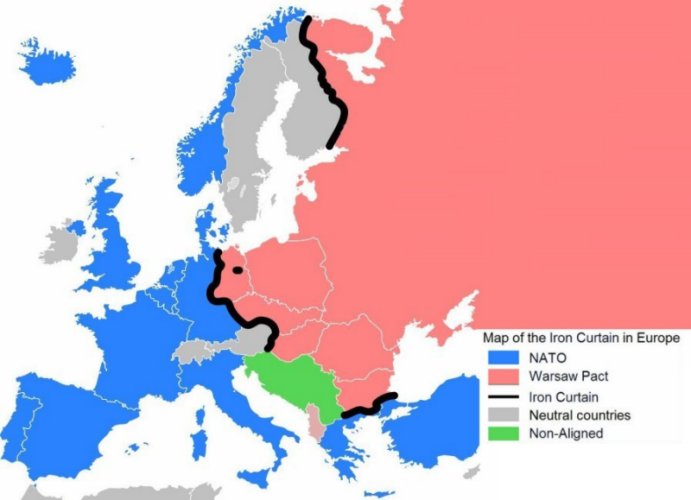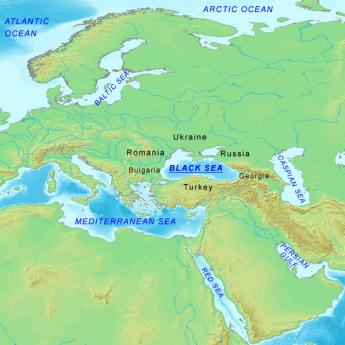Related Topics
...Tax and Monetary Issues in the Constitution, Others (2)
For some Delegates, taxes were all that mattered.
Dislocations: Financial and Fundamental
The crash of 2007 was more than a bank panic. Thirty years of excessive borrowing had reached a point where something was certain to topple it. Alan Greenspan deplored "irrational exuberance" in 1996, but only in 2007 did everybody try to get out the door at the same time. The crash announced the switch to deleveraging, it did not cause it.
Whither, Federal Reserve? (2)After Our Crash
Whither, Federal Reserve? (2)
Right Angle Club: 2013
Reflections about the 91st year of the Club's existence. Delivered for the annual President's dinner at The Philadelphia Club, January 17, 2014.
George Ross Fisher, scribe.
Stress Tests for the European Union

|
| Dr. Ronald J. Granieri |
Dr. Ronald J. Granieri of the office of Secretary of Defense recently spoke to the Right Angle Club about recent threats to the unification of Western Europe. One of his more striking points was that the 1989 collapse of the Soviet Union ending the Cold War, may have unintentionally thwarted the plans for a European Union. The Iron Curtain running from the Baltic to the Black Sea had served as an Eastern boundary for European dreams. When the curtain suddenly disappeared, the European Union was flooded with applications for membership from the recently liberated, formerly Communist-dominated, Eastern Bloc. It was understandable why these countries would wish to get away from Russia, and equally understandable that Russia would be annoyed. But bedazzling expansion was quite unexpected by the European Founding Fathers, who were having enough trouble without doubling their number with weak economies. If Napoleon or Bismarck or some other empire-builder had been in charge at that time, Europe would either have been expanded by brute force, or its borders slammed shut with brute force. But in the clutch, no one was thinking big. Acquiring twenty new nations was an undreamed-for opportunity, but a technical headache for academic theorists. It called for bold action at a time when bold actors were not in charge.
Although it hurts European pride to admit they were following the American model, most of the problems they were encountering were the same problems our own Founding Fathers encountered in 1789. There were two main differences, however, one of which had been written into our Constitution. The other went largely unnoticed. The written difference was we had a bicameral legislative branch, designed to address the issue of voting rights straddling three big states and nine little ones. Pennsylvania had already gone through a dispute over the unicameral Pennsylvania Legislature, which proved to have so much power it unbalanced the three-branch system of government. Consequently, the Philadelphia Constitutional Convention, held in that same building, was already uneasy about unicameral legislatures. It was John Dickinson the delegate from little Delaware, who went to James Madison (of Virginia, then the largest state) and told him bluntly that if Virginia persisted in demanding a unicameral Congress with representatives elected by population size, well, there just wasn't going to be any Union. The three big states refused to participate in any one-state, one-vote, system, while the nine small states wouldn't submit to large-state domination by population size. Either voting by state or voting by population would inevitably result in one side winning every hotly contested vote in a unicameral legislature. So, we had solved our problem by having two legislative houses, one of each kind, and agreeing that legislation would only proceed if both houses were in agreement. What made any legislation possible under these terms, was the informal system of "logrolling", in which informal agreements on seemingly unrelated matters would compensate the loser branch of government, and the states they represented. Since in modern Europe, any group of ten or twenty states in a union would surely have memberships of unequal size, bicameral legislatures seem to Americans to be a perfectly sensible arrangement, so get on with it. The insistence by the League of Nations and the United Nations for one-vote, one-nation arrangements, is a major reason the United States never permitted these supranational forums to have much power.

|
| Iron Curtain |
It's an unspoken truth however, that other nations do not see it our way. That's partly because the German and other parliaments going all the way back to the Roman Senate had established a unicameral tradition in Europe. The other main but unwritten cause of Constitutional differences between the two continents is that we had been surrounded by thousands of miles of ocean, and never had to consider the danger that external and internal enemies would join forces to frustrate our decisions. It is true that many attempts were made to do just this, but they were immediately recognized and easily quashed in the past. As long as the Iron Curtain was operational, Europe thought it might have such ocean-like protection as well, but events in 1989 swept that idea away. With a large addition of formerly hostile states, some members were occasionally bound to join forces with Russia or China, even though they were nominally loyal citizens of the EU. Traitorous behavior had long been an underlying cause of splinter parties and brutal suppression, but that was when Communists were thought by everyone to be agents of a hostile foreign power. With the end of the Cold War, they might become misguided local citizens exercising freedom of speech, claiming a right to argue for behavior which would have formerly been denounced as traitorous. Nations harboring few such inclinations soon became cautious about joining a government with nations who had a great many of them. Citizens of recently enslaved nations were particularly resistant to soothing arguments about unity. It must be confessed that the example of our own Civil War lends force to this feeling of what might happen.

|
| Baltic and Black Seas |
It may be claiming too much to describe the fall of the Iron Curtain, as the major reason for the decline of interest in forming a political union in Europe. That decline did occur and was replaced by the rather weak stratagem of leaving unified government to another time. In its place appeared a strategy of economic unification, hoping the benefits to everyone would become so apparent that unified nationhood would follow. A substrate emerged, narrowing it to a unified currency, the Euro. Bankers and other financial experts argued that such unification would be fairly simple and effective. And so it proved until the same difficulty appeared in a different form. The design of the Euro Currency Zone had apparently underestimated the problems of a foreign currency operating together with the Euro, and variants of Gresham's Law surfaced. Small nation members like Iceland and Cyprus found their small banking systems could not cope with huge inflows of flight money, escaping to tax havens within the Eurozone. As well, underdeveloped member nations actually romanced non-member capital to relocate to their shores. Since local currency is ultimately supported by the full faith and credit of the nation, local banks and economies cannot easily deny equal protections to foreign capital, except temporarily while exchange controls are applied. But when a sufficiently small nation is thus forced to guarantee a sufficiently large amount of foreign money, local banks and markets will be destined to crash. If, in addition, the member nations are deprived of the ability to devalue their currency as the Eurozone could, some type of informal arrangement for a two-value currency had to be devised unless more prosperous members like Germany were willing to subsidize the money flows. When two currencies of unequal value circulate together, said John Gresham to Queen Elizabeth I, the more valuable one will quickly disappear.
Originally published: Friday, April 12, 2013; most-recently modified: Sunday, July 21, 2019